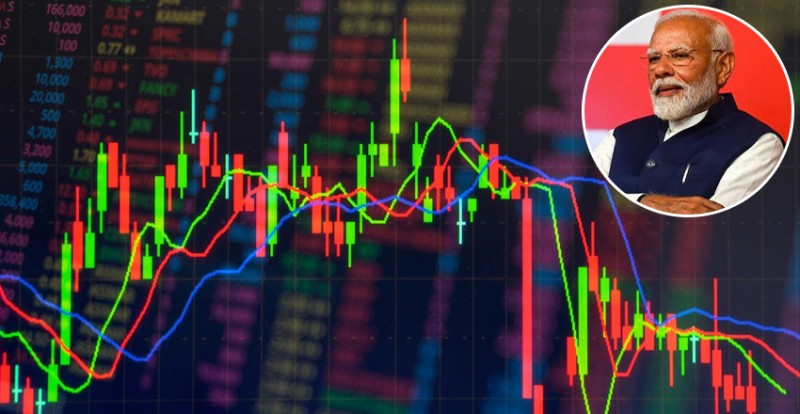
Prime Minister Narendra Modi is set to take oath for his third term amidst a significantly altered political landscape. His new government, bolstered by alliances with major regional parties like the TDP and JD(U), faces expectations and challenges that could reshape India's economic trajectory.
The support from regional allies is expected to come at a cost, potentially slowing down Modi's economic reform agenda. Critics warn that bold reforms might take a backseat while populist measures, including increased welfare schemes, could take precedence. Fitch Ratings, however, maintains a 'positive' outlook on India's medium-term economic growth.
Looking ahead to the upcoming Union Budget for 2024-25, economists anticipate a populist tilt. This budget will set the policy tone for the coalition government and outline the growth path for the next five years, according to Moody's Analytics. The focus on welfare schemes is expected to intensify, particularly with a larger coalition government.
Economist NR Bhanumurthy from BR Ambedkar School of Economics University cautions against excessive populism, arguing that measures like free electricity and loan waivers could hinder economic growth. The government's likely emphasis on rural development comes in response to rural distress exacerbated by high inflation and below-normal monsoons last year.
Bernstein's report suggests an increased focus on direct social schemes to address voter concerns, particularly in rural areas where the BJP faced setbacks. Despite recent electoral losses, Fitch Ratings predicts minimal policy shifts, with the July budget expected to detail the government's economic reforms and fiscal goals for the next five years.
Concerns about reforms and fiscal metrics persist among ratings agencies. Moody's highlights the potential delays in economic and fiscal reforms under a coalition government, which could impede progress on fiscal consolidation. The government aims to reduce the fiscal deficit to 5.1% of GDP in the current fiscal year, down from 5.6% in the previous year, with further reduction to 4.5% in sight.
Over the past several years, the government has focused on supply-side policies such as corporate tax cuts, bank recapitalization, and infrastructure spending to revive private investment.
Fitch Ratings echoes concerns about the coalition government's ability to pass ambitious reforms, particularly in land and labor laws, critical for boosting India's manufacturing sector. The NDA's weakened mandate complicates the passage of such contentious reforms, potentially limiting India's medium-term growth prospects.
Despite these challenges, Fitch Ratings expects broad policy continuity, with the government continuing to prioritize infrastructure investment, business environment improvements, and gradual fiscal consolidation.
Seychelles VP Ahmed Afif Arrives in Delhi for PM Modi's Swearing-in Ceremony
Pakistan Stays Silent on Modi’s Swearing-In: What's Reasons or Implications?
Modi 3.0: Seven Foreign Leaders to Attend Swearing-In Ceremony in Delhi